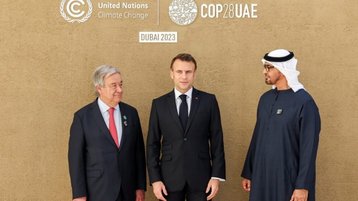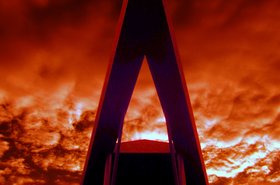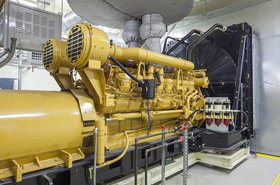A group of 20 nations have promised to triple the amount of nuclear power generated in the world by 2050, to speed the transition to net zero.
President of the French Republic Emmanuel Macron announced the agreement between 22 countries at the COP28 summit in Dubai this week. Other leaders signing up included the US climate envoy John Kerry.
“Nuclear energy is back,” said Macron, who celebrated in Dubai hours after the pledge was made public, in a statement quoted by Euractiv.
“Analysis from the Intergovernmental Panel on Climate Change shows nuclear energy approximately tripling its global installed electrical capacity from 2020 to 2050 in the average 1.5°C scenario,” says the declaration.
Countries signing the agreement included the United States, the United Kingdom, South Korea, Hungary, and the Netherlands.
At the same time, the summit heard another call: To triple renewable energy capacity by 2030, which was supported by 120 countries.
Macron urged the World Bank and other financial institutions to add nuclear into any policies they have for lending on low-carbon generation, which would support the development of nuclear infrastructure in emerging nations.
“Many developing countries want to invest in SMRs (small modular reactors), which are safe and reliable alternatives to fossil fuels, and a good investment for strategic autonomy,” Macron said.
There is still opposition to nuclear power, however. Euractiv reports Green MEP and EU Parliament Transport Committee President Karima Delli described that relying completely on nuclear power “is a false solution,” arguing that the world should rely on renewable energy.
Greenpeace criticized Macron’s “pro-nuclear obsession."
The Nuclear Energy Agency argues that the rapid development of nuclear energy is essential to combat climate change.
"Nuclear Energy Agency analysis shows that tripling nuclear energy capacity by 2050 provides the world with a realistic and practical path to meet net zero carbon emissions goals. We have the research to tell us what needs to be done, and now is the time for action," said Nuclear Energy Agency Director-General William D. Magwood, IV.




